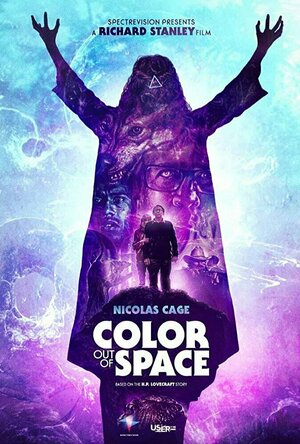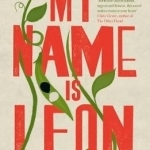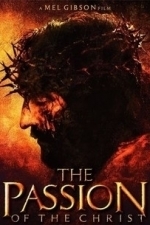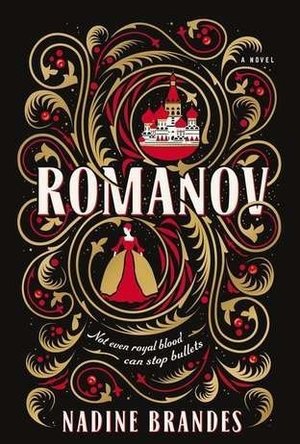Emma @ The Movies (1786 KP) rated Color Out of Space (2019) in Movies
Feb 8, 2020
The Gardners are settling into the secluded family home nicely, no city hustle and bustle to bother them. That peaceful life is shattered when a curious meteorite crashes into their garden. Far from a normal bit of space debris, the rock seems to be changing everything around it. It's taking over, the plants, pace and time, even the family themselves.
Briefly hearing Richard Stanley before this screening made me feel this adaptation of Lovecraft's work of the same name was in good hands, he clearly has an appreciation for what he's was working on and the imagery he creates makes for incredible viewing.
So, straight to Nic Cage... he doesn't quite go full Cage, but he's pretty close. It's the usual insanity we've all come to love.
This film is a little crazy on many levels, the family as a whole are very off before we even get to the magical meteorite. Each member seemingly has their own little corner of crazy town mapped out, and yet when you look at them as a whole you'd wouldn't put them in the same family.
As the film progresses and things get even more bizarre the family feel even less connected than at the beginning. The alien influence is pushing them further apart, but on top of that the script falls away in the middle and chaotic devolving of sanity replaces it. Each member of the family has their own experience with the meteorite, apart from chaos and the underlying cause none of it feels connected.
To say it plainly, there's some really messed up stuff. I would love to see how some of it was achieved because if Richardson is doing half the things it appears she is then she deserves some kind of award. I've got the short story to read so I can compare the two because honestly I can't visualise the written version of this story.
The creatures that evolve are made to be terrifying, and they do scare, but the comedy moments that come through from the performances (mostly unintentionally I guess) detract from it being all that shocking.
Our meteorite has a great influence over the sets for most of the movie, the colours and the growth are used to good effect. The progression is clear and well balanced, it might not always look realistic but the fact that that's the point helps.
When you look at Color Out Of Space as a whole it's all over the place, interesting but ambling, understandable and confusing. Despite that, it's an experience that I enjoyed having.
Originally posted on: https://emmaatthemovies.blogspot.com/2020/02/color-out-of-space-movie-review.html
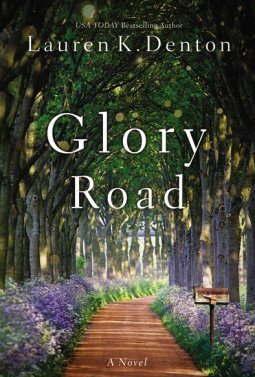
Glory Road
Book
Written in Lauren Denton’s signature Southern style, Glory Road tells the story of three...
Fiction Romance Women's Fiction
Eilidh G Clark (177 KP) rated My Name is Leon in Books
Jul 2, 2019
Leon has begun to notice things what make his mum cry: when Jake makes a lot of noise; when she hasn't got any money; when she comes back from the phone box; when Leon asks too many questions; and when she's staring at Jake, (p.12).
After Carol takes to her bed, Leon, at just nine years old, takes on the role of carer and parent. Through the eyes of this young boy, the reader watches his world fall apart, fragment by fragment.
Eventually the boys are taken into care and find solace in the home of Maureen, an experienced foster carer with a deep love for both cakes and children. Maureen is a lovable character who feels a deep affinity for Leon, even though Leon is highly suspicious of anyone in the care system, but when Jake is adopted, it is Maureen who picks up the pieces. It is perhaps her honesty rather than her role as parent that soothes Leon in his most difficult times:
'Now listen carefully because I want you to understand something and I don't say this to all the children because it's not always true but with you it's true so you have to believe it. And when you believe it you will stop grinding your teeth [...] You will be all right, Leon.' (p.55-56).
But when Maureen is taken into hospital, Leon is left with Maureen's sister Sylvia, a less motherly role model than Maureen but with a desire to please her sister none the less. Their relationship is strained and often uncomfortable, but soon enough Leon finds comfort in a new friend, Tufty. Tufty is a young man who looks after a plot in his father's allotment. The man and the boy form a friendship that grows alongside the seeds that they plant in the garden, so when they both find themselves in the midst of the Birmingham riots, they naturally come together to save each other.
This is a coming of age story unlike any other, it is not a happy ever after but hope for a child and his future.
I love this novel, it is clearly written with believable characters and honest emotions. At the start of the novel I was concerned about the character's point of view - a third person limited perspective from the child's perspective - but it is cleverly done. While the reader gathers glimpses of emotions from inside Leon's head, there is still enough distance to feel the tug of the story from the outside. It is as if the reader is holding the child's hand and experiencing his life with him as it unfolds. Brilliantly done and brilliantly written. Go Leon.

ricardo.ch
Shopping and Lifestyle
App
With the ricardo.ch app you will have the biggest Swiss online marketplace with you at all times –...
Gareth von Kallenbach (980 KP) rated The Passion of the Christ (2004) in Movies
Aug 14, 2019
The film shows the final hours of Jesus leading to his crucifixion and subsequent resurrection. The film opens with Jesus (Jim Caviezel), and some of his Disciples in the garden as Jesus contemplates what is to come and prays that this burden be passed from him if it is Gods will. Jesus is visibly afraid and is unsure of what to do, as he knows Judas has betrayed him and that troops are on the way to arrest him.
Jesus is soon arrested and is beaten and taken before the Jewish elders to be accused of heresy for teaching beliefs which contradict the locale doctrine and for encouraging others to follow his teachings.
Jesus is soon taken before the Roman consul who decides to punish not execute Jesus, as he does not believe his crimes are worthy of death. Politics soon envelope the situation as the Romans fear an uprising if the wishes of the council are not followed forcing Jesus to be ordered for crucifixion.
While I am not one to give away vital parts to a films story, I take it that the majority of readers will know at least this much of the story. The emphasis on the film is on what Jesus had to endure during the final hours of his life and the untold suffering and brutality that were put upon him for his beliefs.
Much has been made of the films intense and graphic violence and I am not going to sugar coat this. The film is very intense and very violent and on more than once occasion caused me to start tearing as the film is very emotional and it is hard to watch a person suffer especially one who many believe devoted his life for the betterment of all of us regardless of faith. I have always been one that believes that all people are entitled to their beliefs and that no group has the right to say that there way is the only way and that others are wrong for not following them.
In many ways, the film drives this point home as Jesus prays for the forgiveness of those who are killing him even though they do not share his faith. The man who was killed as a threat to the society and doctrines of the community never wavered in his love for his fellow man and retained his compassion to the very end.
Gibson is to be commended for making a powerful and emotional film that can be enjoyed by people of all faiths. The film is a visual masterpiece that is highly detailed and is the most accurate depiction of the final hours of Christ ever committed to film. The use of Latin and Aramaic in combination with subtitles underscores attention to detail that Gibson put into his labor of love and as such, he deserves praise for crafting this film regardless of your opinion on the films content. This is a bold and passionate film that attempts to tell the story in the way that it happened as accurately as possible. While some of the scenes may be very difficult to watch, you will not soon forget the images and will have a hard time not being emotionally moved by the work. This is not a film that blames any group for the death of Jesus; it is simply an account as to how and why it happened. The film also serves as a message that we should all embrace and tolerate the differences in our neighbors as when we do not, atrocities can happen. As a student of history, I found myself pondering during the film in regards to what would happen if a figure arrived today that encouraged others to follow a new path and not those of the traditional religions. If said person were to become widely know and develop a large following what would happen? Would they be called a cult and prosecuted, would they be ridiculed, or would they be killed? This troubled me as I think that despite nearly 2000 years of progress there are those who would resort to violence. Such is the case of the film. The majority did not want to see Jesus killed; it was a strong and vocal minority of the population who wanted to protect their interests. The film is not anti-Semitic and does not blame any group for the death of Jesus and emphasizes that his death was in order to absolve sin and blame.
The film makes you think and in this day of disposable films, it is nice to see that despite the controversy and lack of commercial nature of the film, Gibson put his heart into the production and created one of the best films of the decade. Gibson is a master storyteller and shows that he is a gifted director and producer and should be praised for his craft.
Ivana A. | Diary of Difference (1171 KP) rated Romanov in Books
Oct 5, 2020
The history books say I died.
They don’t know the half of it.
Ever since I read Fawkes, I knew I loved Nadine’s writing, and when Romanov was announced, I couldn’t be happier. As I have spend my childhood and young adult life in the Balkans, whilst travelling across Europe, I have always admired Russia, and always enjoyed reading all the theories about the Romanov family.
As a child I would be told stories and fairy tales, I would watch the Disney adaptation of Anastasia, and as I was growing up, I would read history books and fiction on this very subject. When I got my hands on ‘’Romanov’’, I knew I would be up for an adventure, with lots of expectations, but what I never knew was that I would be blown away of how beautiful this book is!
This book is split into two main parts, before and after the Romanov’s execution, but it is also split into the first being the historical part, and the second being the fictional part. Both parts of the book are quite intense, and very different emotions come up to surface, but they are both very powerful throughout, and fitted together quite well.
In the first part, we are introduced to the Romanov family, and how they are kept as hostages by the Bolsheviks. It would’ve been much better if we had more details on the pre-hostage period, why the revolution began, why the king abducted the throne, who are the Bolsheviks and what they believed in. The book starts in the middle of this whole situation, and whilst I knew the beginning before, I am certain a lot of people wouldn’t have.
The history, as much accurate as it was, also had a personalized feeling that the author wanted to give. I have to admit, a lot of the details, especially around the family were quite accurate. The family did stick together and loved each other, they did have secrets and they did make friends with their captors. Anastasia’s brother did indeed had hemophilia and Rasputin was allegedly helping him. However, the author decided to put her personal feelings into the history as well. The king is presented as a wonderful leader that cares about the people. I understand that we see this story from Anastasia’s point of view, and as his daughter, she is supposed to see her father as the best figure in the world. But I still believe this part should be more objective, if not from Anastasia’s point of view, then at least by the king’s actions and dialogues. The other big element that bothered me was the portrayal of Rasputin. He is shown in this book as a family helper and a kind man, when in fact, he was far from that. In the history books, he is described as a madman, a creepy person, and the king was not happy of him coming in the house. The family’s secrecy and the queen’s silent domination over the king, together with Rasputin’s doings were the start of the revolution, and I believe that it one of the required truths that this books should have included, but didn’t. And that troubled me.
On top of this, is the Russian language used throughout this book. There were a lot of spelling errors, and misinterpretations. And whilst I can understand these words, many people can’t, and translation wasn’t provided in the book. Also, I really found this quote interesting, talking about the Russian culture, and how they don’t show emotions. Just a note – this is most of the time true, people won’t be nice to strangers, but actually, Russian people are quite friendly and emotional as well.
‘’We Russians weren’t required to share any amount of emotion we didn’t want to.’’
Apart from these few things that slightly bothered me, I really enjoyed this book. Anastasia is an amazing character, and through her we can see her love towards her family, her country, and even towards the people that wish her harm. We get to see her love, cry, be hurt, be afraid, forgive, and grow throughout the book, and her journey was magical.
‘’As I lay in the grass next to the spell that could rid me of heart pain, I realized that a part of forgiveness was accepting the things someone had done – and the pain that came with that – and moving on with love. Forgiveness was a personal battle that must always be fought in my heart.’’
I loved the beginning of the book the most. The setting was well-written, and I got the feel the same way as the Romanov family did. They tried to act as if everything was normal, when in fact, they were held captive, and moved out of their home. They weren’t allowed to go out in the garden often, and when they did have this opportunity, they enjoyed every single second of it. And they all had hope every single day. They kept smiling and stayed together.
There are number of scenes that will always stay close to my heart – the relationship between Zash and Anastasia (as unrealistic as it might be), always kept me on my toes, his desperation, and his guilt, and her ability to forgive and love regardless.
The brother’s illness, and his persistence through it. His motivation and his will to never give up. The love he holds for his family, and especially his sister Anastasia, and the toughness and not letting go. A few scenes were unrealistic with him, as I hardly believe anyone suffering from hemophilia can survive all those injuries mentioned in the book and the pools of blood, but above all – this character did achieve what he was meant to do – show hope where there is none.
A wonderful and magical tale, with a history behind it of a mysterious family, especially their end – this book brought tears on my eyes and made me think about the power of forgiveness and love. A true masterpiece.
Thank you to Nadine Brandes, for letting me be a part of her Ninja Team.

Barbecue Recipes HD
Food & Drink and Lifestyle
App
The trick to making your BBQ food tasting great is using flavors that you like as well as using good...

All Islamic Audio Stories Muslims Free
Book and Lifestyle
App
Get the largest collection of free All Islamic audio stories Muslims for your phone or tablet. Read...

100 Yoga Spa Relax Music
Health & Fitness
App
100 Yoga Spa Relax Music - The Greatest Yoga,Spa,Meditation,Healing and Manifestation Collection...

Jolly Phonics Letter Sounds
Education and Entertainment
App
Thank you for all the feedback we've received. It's great to hear that the app is helping children...
